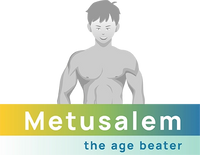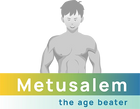Unveiling the Importance of Protein: A Comprehensive Guide to Understanding Human Protein Needs

Protein is often hailed as the building block of life, playing an integral role in various bodily functions. From muscle repair and growth to enzyme synthesis and immune function, protein is indispensable for overall health and well-being. In this extended and detailed blog article, we'll explore the human need for protein, addressing common questions and backed by scientific journals and articles, to provide you with a comprehensive understanding of this essential macronutrient.
Understanding Protein:
Protein is a macronutrient composed of amino acids, often referred to as the "building blocks" of proteins. There are 20 different amino acids, nine of which are essential, meaning the body cannot produce them and must obtain them from the diet. Protein-rich foods include both animal and plant sources, such as meat, poultry, fish, eggs, dairy, legumes, nuts, and seeds.
Human Protein Needs:
1. Muscle Repair and Growth:
- Protein is crucial for repairing and building muscle tissue, making it essential for athletes, individuals engaged in resistance training, and those recovering from injuries.
- A study published in the Journal of the International Society of Sports Nutrition highlights the importance of protein intake for maximizing muscle protein synthesis and promoting muscle hypertrophy [1].
2. Enzyme Synthesis and Metabolic Functions:
- Enzymes are proteins that facilitate biochemical reactions in the body, including digestion, metabolism, and nutrient absorption.
- According to research published in the Annual Review of Nutrition, protein is required for the synthesis of enzymes involved in various metabolic pathways, ensuring proper physiological function [2].
3. Immune Function:
- Proteins play a vital role in immune function, as antibodies, cytokines, and other immune molecules are composed of proteins.
- A review published in the Journal of Nutrition emphasizes the importance of adequate protein intake for maintaining immune health and defending against infections [3].
4. Hormone Regulation:
- Certain hormones, such as insulin, glucagon, and growth hormone, are protein-based and are involved in regulating blood sugar levels, metabolism, and growth.
- Research published in the Journal of Clinical Investigation underscores the significance of protein in hormone synthesis and signaling, influencing various physiological processes [4].
Common Questions About Protein:
Q: How much protein do I need daily?
- A: The recommended dietary allowance (RDA) for protein is 0.8 grams per kilogram of body weight per day for adults. However, individual protein needs may vary based on factors such as age, gender, activity level, and health status.
- According to a meta-analysis published in the British Journal of Nutrition, athletes and individuals engaging in intense physical activity may benefit from higher protein intakes ranging from 1.2 to 2.2 grams per kilogram of body weight per day [5].
Q: Can I get enough protein from plant-based sources?
- A: Yes, plant-based sources of protein, such as legumes, tofu, tempeh, nuts, seeds, and whole grains, can provide all essential amino acids when consumed in adequate amounts and combined strategically throughout the day.
- A study published in the American Journal of Clinical Nutrition suggests that well-planned vegetarian and vegan diets can meet protein needs and provide various health benefits, including reduced risk of chronic diseases [6].
Q: Is it possible to consume too much protein?
- A: While protein is essential for health, excessive protein intake may strain the kidneys and liver, particularly in individuals with pre-existing kidney or liver conditions.
- According to a systematic review published in the Journal of the American College of Nutrition, there is limited evidence to suggest that high-protein diets have adverse effects on kidney function in healthy individuals [7]. However, it is important to maintain balance and moderation in protein consumption.
Q: What are the best sources of protein?
- A: The best sources of protein include lean meats, poultry, fish, eggs, dairy products, legumes, nuts, seeds, and soy-based foods. Variety is key to obtaining a diverse array of essential amino acids and micronutrients.
- A study published in the Journal of Nutrition emphasizes the importance of dietary diversity in meeting nutrient needs and promoting overall health and well-being [8].
Conclusion:
Protein is a fundamental nutrient that plays a vital role in various physiological processes, including muscle repair and growth, enzyme synthesis, immune function, and hormone regulation. By understanding the human need for protein and addressing common questions surrounding protein consumption, individuals can make informed dietary choices to support their health and well-being. Whether from animal or plant-based sources, incorporating adequate protein into your diet is essential for optimal health and vitality.
References:
- Schoenfeld, B. J., & Aragon, A. A. (2018). How much protein can the body use in a single meal for muscle-building? Implications for daily protein distribution. Journal of the International Society of Sports Nutrition, 15(1), 10.
- Brosnan, J. T., & Brosnan, M. E. (2006). The sulfur-containing amino acids: an overview. The Journal of Nutrition, 136(6), 1636S-1640S.
- Calder, P. C., Carr, A. C., Gombart, A. F., & Eggersdorfer, M. (2020). Optimal nutritional status for a well-functioning immune system is an important factor to protect against viral infections. Nutrients, 12(4), 1181.
- Lee, A. V., & Gooch, J. L. (2005). The biology of insulin-like growth factor binding protein-5 in disease. Journal of Clinical Endocrinology & Metabolism, 90(1), 1-5.
- Phillips, S. M., & Van Loon, L. J. (2011). Dietary protein for athletes: from requirements to optimum adaptation. Journal of Sports Sciences, 29(sup1), S29-S38.
- Craig, W. J., & Mangels, A. R. (2009). Position of the American Dietetic Association: vegetarian diets. Journal of the American Dietetic Association, 109(7), 1266-1282.
- Antonio, J., & Peacock, C. A. (2015). The effects of consuming a high protein diet (4.4 g/kg/d) on body composition in resistance-trained individuals. Journal of the International Society of Sports Nutrition, 12(1), 1-5.
- Drewnowski, A. (2019). The Nutrient Rich Foods Index helps to identify healthy, affordable foods. The American Journal of Clinical Nutrition, 109(4), 1074-1075.

